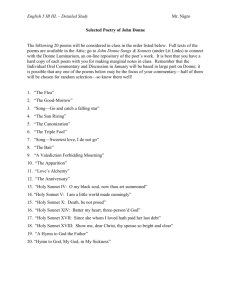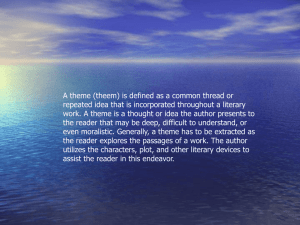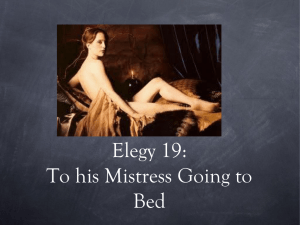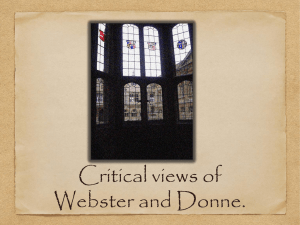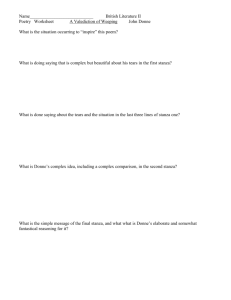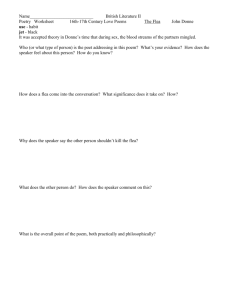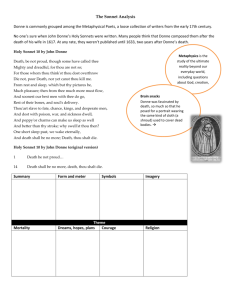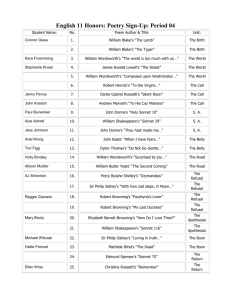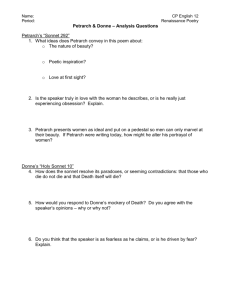Vocabulary for this week's Friday Quiz
advertisement
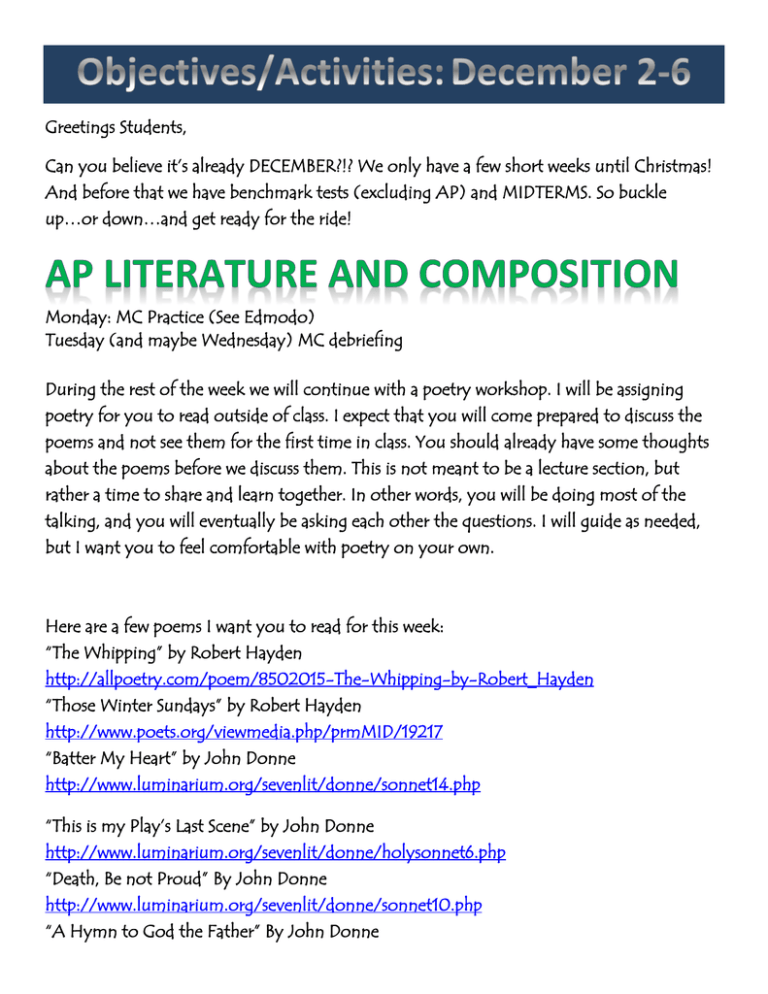
Greetings Students, Can you believe it’s already DECEMBER?!? We only have a few short weeks until Christmas! And before that we have benchmark tests (excluding AP) and MIDTERMS. So buckle up…or down…and get ready for the ride! Monday: MC Practice (See Edmodo) Tuesday (and maybe Wednesday) MC debriefing During the rest of the week we will continue with a poetry workshop. I will be assigning poetry for you to read outside of class. I expect that you will come prepared to discuss the poems and not see them for the first time in class. You should already have some thoughts about the poems before we discuss them. This is not meant to be a lecture section, but rather a time to share and learn together. In other words, you will be doing most of the talking, and you will eventually be asking each other the questions. I will guide as needed, but I want you to feel comfortable with poetry on your own. Here are a few poems I want you to read for this week: “The Whipping” by Robert Hayden http://allpoetry.com/poem/8502015-The-Whipping-by-Robert_Hayden “Those Winter Sundays” by Robert Hayden http://www.poets.org/viewmedia.php/prmMID/19217 “Batter My Heart” by John Donne http://www.luminarium.org/sevenlit/donne/sonnet14.php “This is my Play’s Last Scene” by John Donne http://www.luminarium.org/sevenlit/donne/holysonnet6.php “Death, Be not Proud” By John Donne http://www.luminarium.org/sevenlit/donne/sonnet10.php “A Hymn to God the Father” By John Donne http://www.luminarium.org/sevenlit/donne/hymntogod.php “Sonnet LXXIII” by William Shakespeare http://www.shakespeares-sonnets.com/sonnet/73 “Sonnet CXXXVIII” by William Shakespeare http://www.shakespeares-sonnets.com/sonnet/138 “Sonnet CXXX” by William Shakespeare http://www.shakespeares-sonnets.com/sonnet/130 Vocabulary for this week’s Friday Quiz: 1. elegy—a formal poem presenting a meditation on death or another solemn theme 2. ellipsis—the omission of a word or phrase which is grammatically necessary but can be deduced from the context (“Some people prefer cats; others, dogs”). 3. epic—a long narrative poem written in elevated style which presents the adventures of characters of high position and episodes that are important to the history of a race or nation. 4. epigram—a brief, pithy, and often paradoxical saying 5. epigraph—a saying or statement on the title page of a work, or used as a heading for a chapter or other section of a work 6. epiphany—a moment of sudden revelation or insight 7. epitaph—an inscription on a tombstone or burial place 8. epithet—a term used to point out a characteristic of a person. Homeric epithets are often compound adjectives (“swift-footed Achilles”) that become an almost formulaic part of a name. Epithets can be abusive or offensive but are not so by definition. For example, athletes may be proud of their given epithets (“The Rocket”). 9. eulogy—a formal speech praising a person who has died 10. euphemism—an indirect, less offensive way of saying something that is considered unpleasant 11. expletive—an interjection to lend emphasis; sometimes, a profanity 12. fable—a brief story that leads to a moral, often using animals as characters 13. fantasy—a story that concerns an unreal world or contains unreal characters; a fantasy may be merely whimsical, or it may present a serious point 14. figurative language—language employing one or more figures of speech (simile, metaphor, imagery, etc.) 15. flashback—the insertion of an earlier event into the normal chronological order of a narrative 16. flat character—a character who embodies a single quality and who does not develop in the course of a story 17. foreshadowing—the presentation of material in such a way that the reader is prepared for what is to come later in the work 18. frame device—a story within a story. An example is Chaucer’s Canterbury Tales, in which the primary tales are told within the “frame story” of the pilgrimage to Canterbury Monday: Test on Doctor Faustus (See Edmodo) Tuesday: Scored Discussion on Doctor Faustus (See Edmodo) You will also write an essay on the play when we finish. I will post the possible topics and due dates on Edmodo. Wednesday-Friday: See Pearson for reading. We will begin a study of 17th Century British writing, so you need to read the historical background assignment. And we will start our literature with the poetry of John Donne. Not all of the poems we will read from him are on Pearson, so you will also need to visit http://www.luminarium.org/sevenlit/donne/donnebib.htm for some of them. Vocabulary quiz on Friday, December 6: https://drive.google.com/file/d/0B-7_DpYfa9MARmZhcjdmcnRJQ2M/edit?usp=sharing Monday while I am out (my son is having surgery) you will take a preparation test on PEARSON. Open your Pearson to do list and take the test titled: Unit 3 CC Test-Taking Practice. We will review it on Tuesday, and you will take another test for a grade next week. We will do some practice together first. Wednesday we will continue our study of Poe and the romantics. We will compare and contrast the characters Tom Walker and Rip Van Winkle. You will need to read “Rip Van Winkle” as well, but this is not on Pearson. You can find it here: http://www.mrgunnar.net/files/Rip%20Van%20Winkle%20Text.pdf On Wednesday, we will read more Poe, including the poem “The Raven” and the short story “The Oval Portrait,” which can be found here: http://xroads.virginia.edu/~hyper/POE/oval.html Should we complete all of the aforementioned, we will tackle the Transcendentalists, focusing on Ralph Waldo Emerson and Henry David Thoreau. I have assigned some reading from these two on Pearson. Vocabulary for this week: https://drive.google.com/file/d/0B-7_DpYfa9MAajdwXzJwaXZoWXc/edit?usp=sharing
